I can’t pinpoint exactly when my relationship with alcohol started to become a problem, because at first, it all felt normal.
At 16, I drank like everyone else – weekends with friends, nights out, nothing too out of the ordinary.
But looking back, it was in my 30s that alcohol shifted from something social to something I used to cope with problems in my life.
On New Year’s Eve, 2008, my fiancé of six years told me he didn’t love me anymore.
I moved out of his flat that we shared the next day – heartbroken and lost.
I didn’t know what to do with the emotional pain, so I drank.
Nights were spent in a local pub with friends, and bottles of wine consumed with my mum Caroline until the anger or sadness passed.
I wouldn’t go out sober.
Drinking felt essential.
It gave me confidence, made me feel fun.
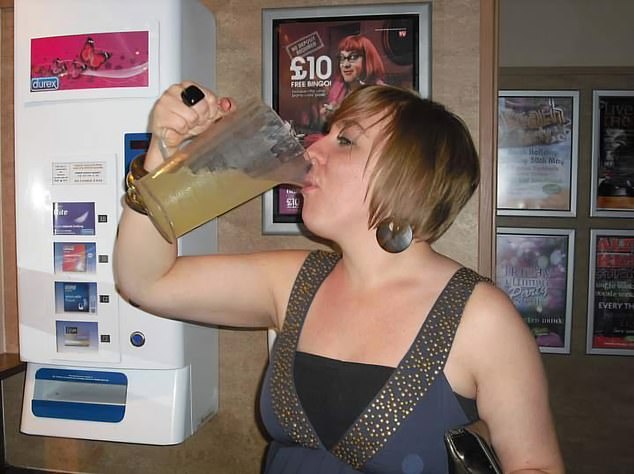
Amy Deards is pictured while still drinking, she was a heavy drinker from the age of 16
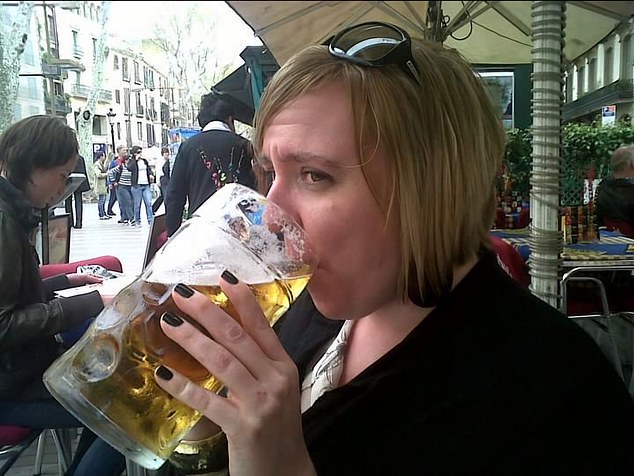
Amy, pictured drinking a beer, drank up to four bottles of wine a day
I didn’t believe it was possible to enjoy myself without it.
And it became my way of coping.
I lost my job at New Look not long after.
Someone had complained I smelled of alcohol.
That part wasn’t upheld – but instead of seeing it as a warning sign, I used it as justification.
I told myself it was their fault I’d lost my job.
It didn’t stop me drinking – I drank more.
In the jobs that followed, mainly in retail, I’d count down the hours until I could get home and pour a glass of wine.
I didn’t see it for what it was back then, but now it’s so obvious – the obsession had already begun.
I was high-functioning enough that no one really knew.
Or, at least, no one said anything.
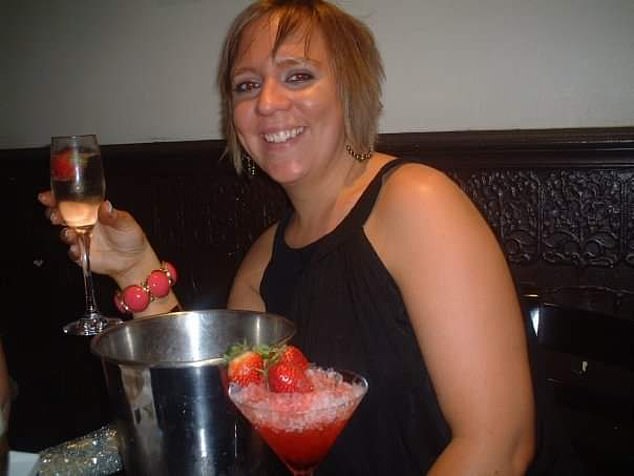
In 2008, Amy’s fiancee broke up with her, causing her to spiral into more drinking
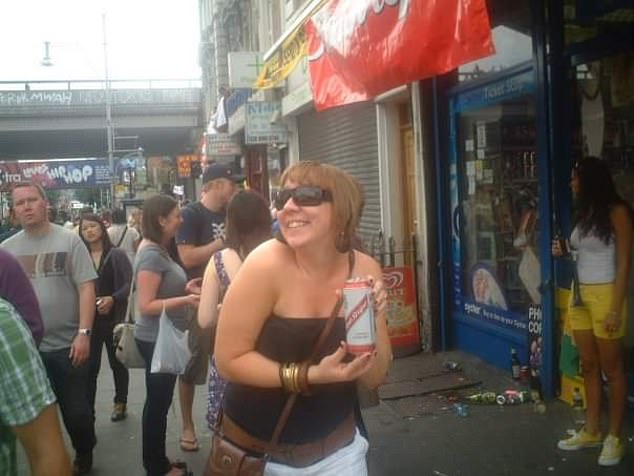
By 2015, Amy (pictured) started hiding bottles, which were found by her mother
By 2015, I started hiding bottles.
That’s when I knew, deep down, that something wasn’t right.
But I convinced myself it was no one else’s business.
I was living at my mum’s while saving to move to Cambodia.
A friend had told me it was really nice and I thought a change of country might change me.
One night I came home from drinking, and she’d lined all the empty bottles up on the kitchen side.
There were about 15.
She had found them shoved at the back of my wardrobe.
I still remember the look on her face.
There was no shouting – just quiet heartbreak.
Moving to Cambodia on my own in 2016 gave me total freedom – no one was watching, no one was questioning – but it also gave me a deep sense of loneliness.
I was teaching English as a foreign language to young children, and lived with a woman from New Zealand in an apartment in Phnom Penh.
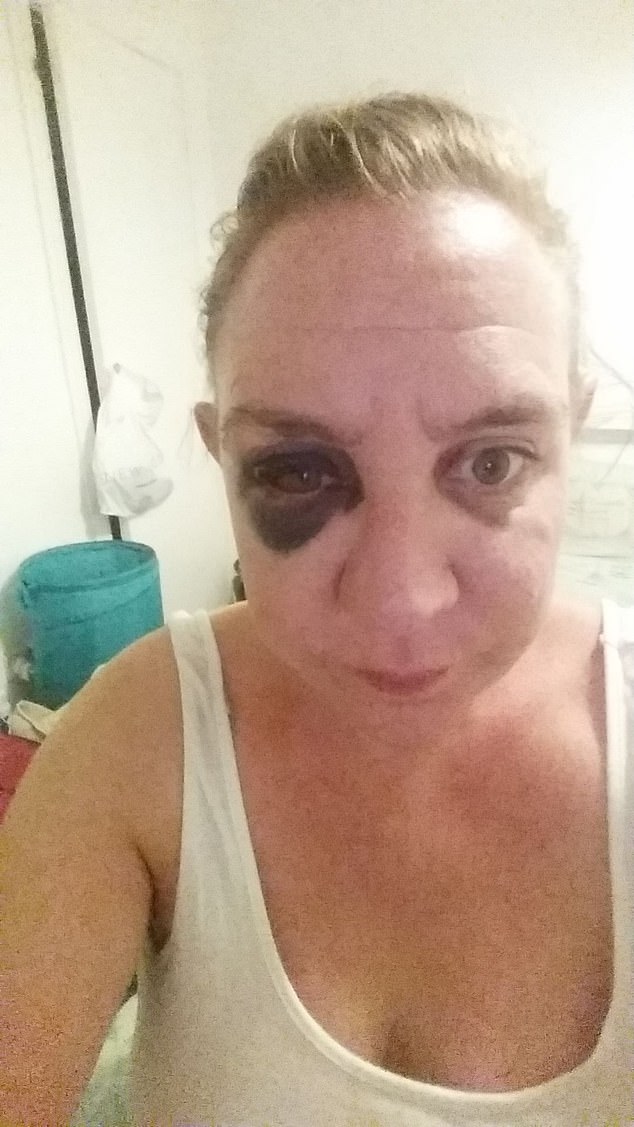
In 2019, Amy fractured my face after a fall while drunk and had to go onto antibiotics
There was one night out that sticks with me.
I hadn’t come home after a night out, and my housemate rang my mum back in the UK, as they were so worried.
I’d ended up at a casino with a group of men I’d met in a bar, phone dead, no way for anyone to reach me.
My mum was frantic. My housemate was panicked.
But me? I thought they were overreacting. That was my mindset.
That’s when I truly knew I had a problem.
I thought coming home after a year would fix it.
But even on the flight back to the UK, and drinking a beer at the airport, I knew it wouldn’t.
I got my own place, which meant there was no one around to see what I was doing.
I think deep down, my mum knew – but she also realised I would have to come to it myself.
She’d talk to me gently about it sometimes, and I’d make these half-hearted promises to cut down.
But the truth is, living alone made it way too easy to carry on.
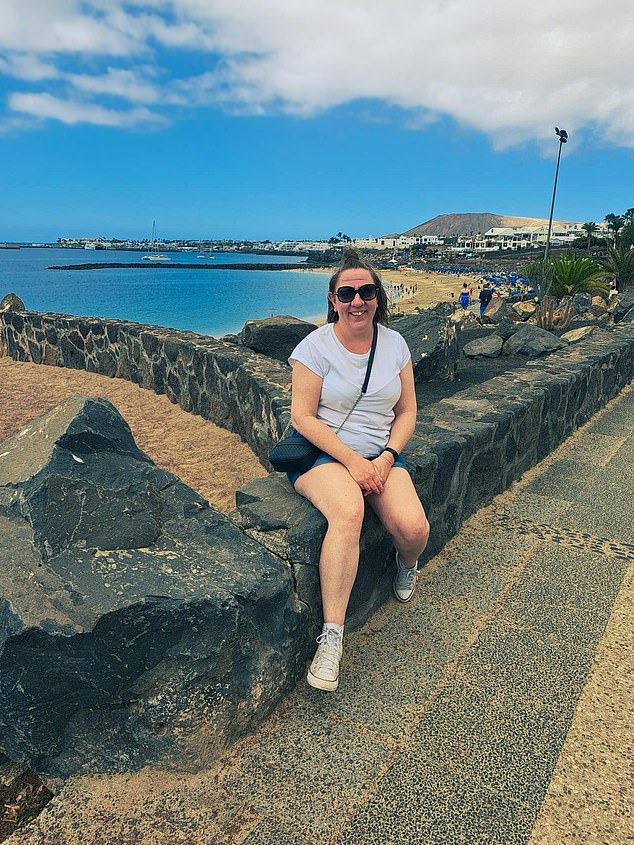
Amy, pictured now sober, helps others with their alcohol addiction

Amy is pictured now sober, she went to her first AA meeting still drunk
Then came Christmas 2018 when I was 38.
I was working in a pub, and after one of my shifts, I drank way too much.
I ended up drink-driving home. I don’t even remember doing it.
My colleagues were so concerned they called the police.
But again, I didn’t see the danger – or my own responsibility.
I blamed them. In my head, I was the victim.
I never went back to that job but I also didn’t drive again until I got sober in 2019, so a part of me knew.
By the end, I was drinking between three and four bottles of wine a day.
That had become my normal. I didn’t even think it was excessive – it was just what I needed to get through the day.
I stopped going out as much because it was easier to drink at home.
When I did go out, I’d usually end up black-out drunk.
I’d fall over, lose my keys, wake up in places I had no memory of ever going.
It became too risky, too unpredictable.
So I started choosing the sofa, a bottle – or four – and my own little bubble of self-pity.
Eventually, I couldn’t do anything without a drink in me.
I needed at least two glasses of wine just to get ready for work because my hands would be shaking so much.
I isolated myself a lot because I was trying so hard to hide what was really going on, as I didn’t want to face questions from friends or family.
I wasn’t in a romantic relationship during that time.
In some ways I knew I wasn’t capable.
But I was promiscuous. I had a lot of one-night stands, thinking they’d somehow make me feel better.
They didn’t. If anything, they made it worse.
I’d wake up filled with shame and self-loathing, and then use that as another excuse to drink.
In the summer of 2018, I experienced what should have been a rock bottom moment.
That was when I fractured my face after a fall while drunk.
But it wasn’t. Not yet.
I had to stop drinking for eight days while I was on antibiotics.
But, the following week I celebrated by drinking again.
A reward. I knew then was in trouble.
I went to my first AA meeting in January 2019.
I was drunk when I went.
I don’t even remember much about it, but that was the first time I admitted something was wrong – even if I wasn’t ready to deal with it yet.
Alcohol and addiction had affected my confidence, my sense of self, my ability to trust my own thoughts.
I stopped making plans for the future.
I lived day-to-day, hour-to-hour, bottle-to-bottle. It robbed me of time.
And, it impacted my health – my body was exhausted, my hands shook, I sweated constantly, my anxiety was through the roof.
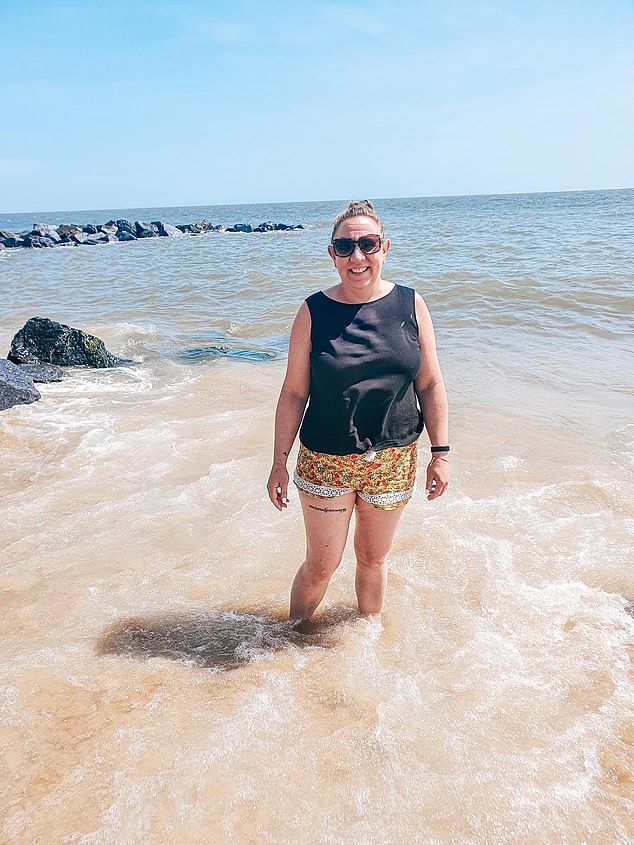
In May 2019, Amy (pictured now sober) was out at work working as a store manage of a retail shop, she passed out
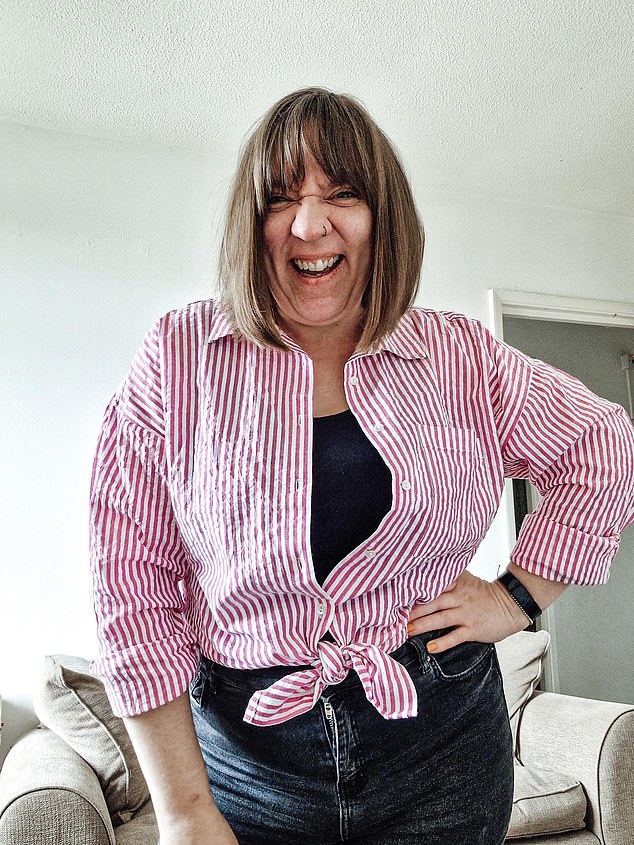
Amy has now been sober for six years
But I didn’t care – my main concern was hiding the truth, from others, and most importantly, from myself.
I told lies.
I lived a double life: the version I showed the world and the one that sat at home pouring another glass.
The moment it all stopped wasn’t loud or dramatic.
It was May 2019, and I passed out at work working as a store manage of a retail shop.
I was drinking all day, every day – even at work.
When they found me unconscious, I felt pure shame. But still not surprised.
At the same time, I was also in therapy, trying to cope without actually telling my therapist I was still drinking.
Years of buried pain came up – heartbreak, my parents’ divorce, the fallout from my cancelled wedding. I had no idea how to cope. So I drank more.
But, that day, something cracked. I didn’t want to live like this anymore.
But I didn’t want to die either. I’d been given the number for the Samaritans, and I called them.
That call saved my life. After that, I rang my mum and told her I needed help.
My mum suggested rehab. And four days later, I was in. Now, I’ve been sober for six years, since 8 May 2019.
If I’m honest, I haven’t found my recovery that hard – not in the way people expect.
I accepted very early on that I just couldn’t drink. I loved rehab. I soaked up everything. I started going to 12-step meetings and worked through a programme.
The real shift came in October 2020, when I finally shared on social media that I was in recovery.
I was tired of pretending.
And the outpouring of love and ‘me too’ messages flipped something in my mind. Maybe I didn’t have to hide.
That’s when I began helping others – and helping others helped me. That’s how it works.
On the outside, the changes are obvious – I look healthier, I show up, I’ve built a business.
In 2022, I decided to write a book to help others. How Did I Get Here: Building A Life Beyond Alcohol wasn’t just about sharing my story – it was about telling the truth.
Even when I got sober, there weren’t enough stories that talked about the identity crisis, the grief, the rediscovery, the unlearning, the rising.
I wanted women to know they weren’t broken.
Drinking has been normalised, glamourised, romanticised to the point where not drinking makes you the weird one.
But here’s the truth: you don’t need alcohol to have fun, to fit in, or to survive the day.
And once you realise that, once you live that – you start to see the lie for what it is.
As told to Carol Driver
Amy Deards is a mindset coach on a mission to help women break free from anything that’s keeping them stuck, whether that’s addiction, self-doubt, or old stories they’ve been told.
She guides them to uncover their true power, build unstoppable confidence, and create lives so bold and fulfilling they never want to escape. It’s about transformation, freedom, and living on their own terms. https://amydeardscoaching.com/












